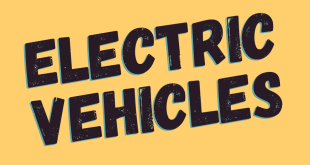Introduction to the rise of electric vehicles
Electric vehicles (EVs) are zooming into the spotlight, revolutionizing the way we think about transportation. With new competitors entering the race to electrify our roads, Nissan and Honda are revving up their efforts to stay ahead of the curve. Let’s dive into how these automotive giants are navigating this electrifying landscape and explore the potential benefits of a strategic partnership between them.
The impact of new competitors in the market
The electric vehicle market has been buzzing with excitement and innovation, but new competitors are shaking things up. With traditional automakers and tech giants entering the scene, the competition is heating up like never before. These fresh faces bring new ideas, technologies, and strategies to the table, challenging the status quo of established players. As a result, consumers now have a wider range of options to choose from when it comes to EVs.
The entrance of these new competitors also pushes existing companies like Nissan and Honda to step up their game even further. It fuels innovation and drives them to continuously improve their products and services in order to stay ahead in this rapidly evolving industry. While this increased competition may pose challenges for some, it ultimately benefits consumers by fostering creativity and driving down prices through market forces at play.
In this dynamic landscape, adaptability is key for companies looking to thrive amidst these changes. By embracing competition as an opportunity for growth rather than a threat, both newcomers and veterans can harness their strengths to push the boundaries of what’s possible in the world of electric vehicles.
Nissan and Honda’s current EV efforts
Nissan and Honda are making strides in the electric vehicle (EV) market with their innovative efforts. Nissan has been a trailblazer with its popular Leaf model, known for its efficiency and affordability. On the other hand, Honda has been focusing on developing EVs that offer both performance and sustainability.
Both automakers have invested heavily in research and development to stay competitive in the rapidly evolving EV landscape. Nissan’s commitment to expanding its EV lineup shows through models like the Ariya SUV, while Honda is gearing up to introduce more electrified vehicles under its e:Architecture platform.
With increasing pressure from new players entering the EV market, such as Tesla and Rivian, Nissan and Honda recognize the importance of collaboration to enhance their technological capabilities and accelerate their EV initiatives. By joining forces, they can leverage each other’s strengths to bring cutting-edge electric vehicles to consumers worldwide.
The potential benefits of a partnership between Nissan and Honda
The potential benefits of a partnership between Nissan and Honda in the electric vehicle (EV) industry are vast. By joining forces, these two automotive giants have the opportunity to combine their expertise and resources to accelerate innovation in EV technology. Collaborating on research and development can lead to the creation of more efficient batteries, enhancing overall performance and driving range for EVs.
Additionally, a partnership could result in cost-saving synergies through shared production facilities and supply chains. This collaboration may enable both companies to scale up their EV offerings more rapidly, meeting the increasing demand for environmentally friendly vehicles worldwide. Furthermore, working together allows Nissan and Honda to leverage each other’s strengths in different markets, potentially expanding their global reach.
A partnership between Nissan and Honda has the potential to revolutionize the EV market by fostering competition while driving advancements that benefit consumers looking for sustainable transportation options.
Challenges and obstacles that may arise from a partnership
Collaboration between Nissan and Honda in the EV sector may bring about its own set of challenges. Both companies have distinct corporate cultures and approaches to technology development which could clash during collaboration. Finding a common ground may require compromises on both sides.
Moreover, differences in manufacturing processes and supply chains could pose logistical hurdles that need to be carefully navigated. Integration of systems and workflows might not be as seamless as anticipated, potentially leading to delays or inefficiencies.
Additionally, sharing intellectual property and proprietary technologies can raise concerns about safeguarding trade secrets and maintaining competitive advantages. Balancing transparency with confidentiality will be crucial for the success of any partnership between these automotive giants.
Differing market strategies and customer bases could create conflicts in decision-making regarding product positioning and branding within a joint venture scenario. Aligning these aspects harmoniously will be essential for achieving mutual growth in the rapidly evolving EV landscape.
Potential impact on the EV market and industry as a whole
As Nissan and Honda explore the possibility of a partnership in the electric vehicle (EV) sector, the potential impact on the EV market and industry as a whole is significant. This collaboration could lead to shared resources, technology advancements, and increased economies of scale in production.
By joining forces, these two automotive giants could accelerate innovation, drive down costs, and enhance their competitive positions against emerging rivals entering the EV market. Additionally, a partnership between Nissan and Honda may foster greater consumer confidence in EV technology through combined expertise and research efforts.
Furthermore, such collaboration has the potential to set new industry standards for sustainability practices, battery technologies, and overall product quality within the EV segment. As global demand for environmentally-friendly transportation continues to rise, partnerships like this one could pave the way for widespread adoption of electric vehicles worldwide.
Conclusion: Importance of collaboration in the EV industry for continued growth and development
Collaboration in the electric vehicle industry is crucial for ongoing growth and development. As new competitors enter the market, established players like Nissan and Honda must adapt to stay competitive. By joining forces, these two automakers could leverage their respective strengths to innovate faster, reduce costs, and ultimately bring more advanced EVs to consumers. In a rapidly evolving industry like electric vehicles, collaboration may be the key to driving progress and shaping the future of sustainable transportation for years to come.
